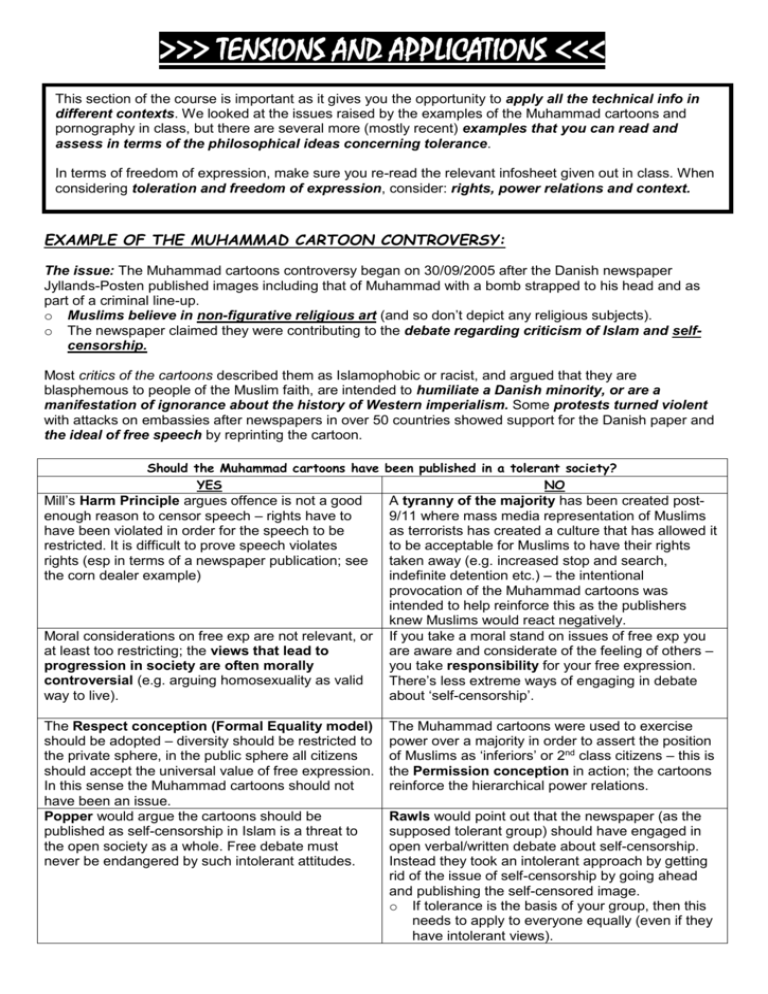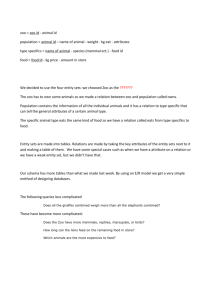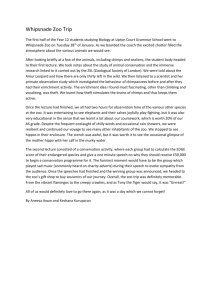
>>> TENSIONS AND APPLICATIONS <<<
This section of the course is important as it gives you the opportunity to apply all the technical info in
different contexts. We looked at the issues raised by the examples of the Muhammad cartoons and
pornography in class, but there are several more (mostly recent) examples that you can read and
assess in terms of the philosophical ideas concerning tolerance.
In terms of freedom of expression, make sure you re-read the relevant infosheet given out in class. When
considering toleration and freedom of expression, consider: rights, power relations and context.
EXAMPLE OF THE MUHAMMAD CARTOON CONTROVERSY:
The issue: The Muhammad cartoons controversy began on 30/09/2005 after the Danish newspaper
Jyllands-Posten published images including that of Muhammad with a bomb strapped to his head and as
part of a criminal line-up.
o Muslims believe in non-figurative religious art (and so don’t depict any religious subjects).
o The newspaper claimed they were contributing to the debate regarding criticism of Islam and selfcensorship.
Most critics of the cartoons described them as Islamophobic or racist, and argued that they are
blasphemous to people of the Muslim faith, are intended to humiliate a Danish minority, or are a
manifestation of ignorance about the history of Western imperialism. Some protests turned violent
with attacks on embassies after newspapers in over 50 countries showed support for the Danish paper and
the ideal of free speech by reprinting the cartoon.
Should the Muhammad cartoons have been published in a tolerant society?
YES
NO
Mill’s Harm Principle argues offence is not a good
enough reason to censor speech – rights have to
have been violated in order for the speech to be
restricted. It is difficult to prove speech violates
rights (esp in terms of a newspaper publication; see
the corn dealer example)
Moral considerations on free exp are not relevant, or
at least too restricting; the views that lead to
progression in society are often morally
controversial (e.g. arguing homosexuality as valid
way to live).
The Respect conception (Formal Equality model)
should be adopted – diversity should be restricted to
the private sphere, in the public sphere all citizens
should accept the universal value of free expression.
In this sense the Muhammad cartoons should not
have been an issue.
Popper would argue the cartoons should be
published as self-censorship in Islam is a threat to
the open society as a whole. Free debate must
never be endangered by such intolerant attitudes.
A tyranny of the majority has been created post9/11 where mass media representation of Muslims
as terrorists has created a culture that has allowed it
to be acceptable for Muslims to have their rights
taken away (e.g. increased stop and search,
indefinite detention etc.) – the intentional
provocation of the Muhammad cartoons was
intended to help reinforce this as the publishers
knew Muslims would react negatively.
If you take a moral stand on issues of free exp you
are aware and considerate of the feeling of others –
you take responsibility for your free expression.
There’s less extreme ways of engaging in debate
about ‘self-censorship’.
The Muhammad cartoons were used to exercise
power over a majority in order to assert the position
of Muslims as ‘inferiors’ or 2nd class citizens – this is
the Permission conception in action; the cartoons
reinforce the hierarchical power relations.
Rawls would point out that the newspaper (as the
supposed tolerant group) should have engaged in
open verbal/written debate about self-censorship.
Instead they took an intolerant approach by getting
rid of the issue of self-censorship by going ahead
and publishing the self-censored image.
o If tolerance is the basis of your group, then this
needs to apply to everyone equally (even if they
have intolerant views).
EXAMPLE OF PORNOGRAPHY:
The issue: pornography essentially is the depiction of sexual activity in order to arouse; this can include
film, photographs and certain kinds of literature.
Power relations: concerns about pornography have traditionally revolved around feminist accusations
that porn exploits, degrades and harms women. Though other feminists saw this as a form of sexual
liberation for women, who for centuries had been repressed and restricted to the private spheres, the
concerns still carry weight because of the audience for porn that depicts women: mainly males.
However, context is very important here – while pornography traditionally depicted females as being
subject to male advances, we then had gay porn (male on male) and now have amateur porn (private
couples making their own videos and posting them on the internet – rather than hired actors and actresses
being paid to star in the films; does this affect the debate in some way?).
However despite the free choice in some amateur exhibitionism – many of the original concerns could
still remain, if we focus on the distribution of porn, rather than its making. Even if some couples choose to
make pornography, does the proliferation of such images harm women in general and cause males to form
poor attitudes towards them, i.e. by making them appear to be merely objects for sexual gratification, or
making aggressive advances towards women appear acceptable etc.
Remember, rights have to be considered here – the Harm Principle, the tyranny of the majority, causal
relations between image and psychology, do any of these things justify the notion that the rights of women
are being harmed and therefore that pornography should be censored in a tolerant society?
Should pornography be distributed in a tolerant society?
YES
NO
FURTHER EXAMPLES FOR TENSIONS AND APPLICATIONS
Feminism in contemporary Italy
http://www.guardian.co.uk/world/2009/sep/20/berlusconi-italian-women-backlash
After a summer of sleaze in which the Italian P.M. Silvio Berlusconi has been variously accused of "frequenting
minors", sleeping with an escort girl and holding debauched parties at his Sardinian villa, a feminist backlash is gaining
momentum. The target is not only Berlusconi but the wider culture of a country in which a prime minister could survive
such allegations. According to Chiara Volpato, an academic at Milan's Bicocca University, matters hit rock bottom
when Berlusconi's lawyer said his client would never pay for sex with an escort because the prime minister is merely
an "end user" of women: "The choice of language really summed up how far we have sunk."
This summer a group of academics, including Volpato, persuaded 15,000 people to sign a petition asking the wives of
world leaders to boycott the G8 conference in Italy in protest at the plight of women in Berlusconi's Italy. Female
judges, senators, nuns, historians and businesswomen circulated two more petitions calling for an end to sexism on
television, while the European court of human rights will decide if Berlusconi can be sanctioned for sexism after two
politicians complained to the court about his "continuous and repeated disrespectful statements about the lives and
the dignity of women".
Times were not always so bad. Italian women can draw inspiration from a proud record of winning rights in the 1970s,
when 20,000 feminists would fill Rome's streets on protest marches. Despite fierce resistance from the Vatican,
divorce was legalised in 1974 after a referendum, and parliament legalised abortion in 1978.
"In an Italy with no divorce, secret abortions and huge inequality in the home, feminism achieved nothing short of an
earthquake," said Miriam Mafai, a former parliamentarian and veteran journalist who helped to launch the Italian daily
La Repubblica in 1976. But in recent years the Vatican has been making up lost ground. Abortion may be legal, but
women have reported Catholic doctors refusing to supply even morning-after pills. And in the prime minister the
unreconstructed Italian male has found a 21st-century hero.
Zanardo said that television was playing a crucial role in demeaning women and damaging their self-esteem: "Eighty
per cent of Italians who watch TV use it as their sole source of information and 80% of the women featured on TV are
either sex objects or mere decoration." As young girls bred on Italian TV increasingly dream of life as a velina, or
showgirl, their mothers are often too tired to protest, she added. "Between jobs and housework, Italian women now
work two hours a day longer than the European average."
For now, the modern feminist revolt remains largely confined to universities and national newspapers. Despite the
flurry of activity, Ventura said she was pessimistic about rank-and-file women joining the petition-signing intellectuals:
"The alarm is sounding in universities but not elsewhere, this is not yet a political problem. Feminism achieved a lot
first time round, but evidently it did not reach deep enough." Zanardo disagrees, claiming protest is growing outside
university corridors, but people do not know where to look. "It's happening on the internet. The proof was when the
University of Bologna withdrew erotic images it used in advertising after a huge online protest."
There are other signs. A risqué TV comedy show on a Berlusconi channel was moved to a later time slot after protests
from a parents' group. And when a blonde model on Berlusconi's flagship football programme exposed a breast during
a dance routine she was promptly sacked. "I don't think that would have happened in the past," said Zanardo whose
website is registering complaints about lewd images on TV and is planning courses in schools "to help children defend
themselves from this television". The response, she says, has been overwhelming: "People who watch Italian TV all
the time have told me 'Thanks, it's the first time I really see what is going on'."
Consider the various issues of toleration that have arisen here, including the following but any other relevant
issues you can think of:
o
Power relations in society
o
Feminism / repressive desublimation
o
Freedom of expression
Racism and Freedom of Expression in contemporary France
http://www.guardian.co.uk/books/2009/nov/13/french-novelist-mp-reserve-goncourt
The winner of this year's Goncourt literature prize has spoken out against an MP's "grotesque" calls for her
to tone down her criticisms of the French government.
In an interview with Libération, the French-Senegalese novelist Marie NDiaye expressed contempt for Éric
Raoult's concept of a "duty of reserve", and reaffirmed her criticisms of his party leader, the president
Nicolas Sarkozy, and his government. "I haven't moved an iota," she said "and all this has underlined what I
think. It's an excellent illustration of what I was saying."
The row ignited over an interview the novelist gave to the French cultural magazine Les Inrockuptibles at
the end of August, more than two months before her novel Trois femmes puissantes (Three Powerful
Women) won the Goncourt prize. In it she talked about her upbringing in France and the visits to her
Senagalese father that gave her a sense of being foreign in both France and Africa. She also spoke about
the discrimination faced by black people in France, described Sarkozy's France and his immigration
ministers Éric Besson and Brice Hortefeux as being "monstruous", and said that she had moved to Berlin
because of his election as president. "We left just after the elections, mostly because of Sarkozy, even
though I can see that saying that might seem snobby," she said. "I detest that repressive atmosphere, that
coarseness ... "
These remarks were enough for Raoult to call on the French culture minister, Frédéric Mitterrand, to tell
Goncourt laureates that they should be mindful of "national unity and the image of our country" when they
speak. "I am in favour of the most complete freedom of expression for writers," he said, "but that is not the
freedom to smear or to insult."
The minister refused to intervene in a dispute he described as "ridiculous", telling radio France Bleu Isère
that "the writers who receive the Goncourt prize have the right to say what they like." "Éric Raoult, who is a
friend and a very worthy man, has the right as a citizen and as a parliamentarian to say what he thinks," he
added.
NDiaye declared that she found the whole affair "not uninteresting". "I'm not displeased that this has
happened," she said, "it forces everyone to clarify their positions."
Consider the various issues of toleration that have arisen here, including the following but any other relevant issues
you can think of:
o
Freedom of expression
o
The Respect conception (Formal Equality model)
o
Social stability / the threat of strife
A societal approach to freedom of expression
‘Sexual violence depiction causes audience collapse’ http://www.scoop.co.nz/stories/PO0303/S00182.htm
In New Zealand, Chief Censor Bill Hastings and his censors from the Office of Film and Literature Classification Office
have granted so many general R18 classifications to films containing gratuitous sexual violence combined with explicit
sex, that one wonders what’s next in store for ‘enlightened’ and ‘mature’ NZ film festival goers, keen to see more
degrading, sick and shocking films.
Tonight (20th March) in Wellington Hasting’s Office has organised a random selection of the general public to view a
shocking French sex-violence film called “Irreversible” which was submitted for classification in January 2003 by the
director of the Beck’s Incredible Film Festival, Anthony Timpson, who appears to be planning to screen it at his festival
commencing in Auckland on May 29, 2003 and in Wellington on 5 June 2003.
Bill Hastings is seeking input tonight from the public (including 18-year olds) to help him and his expert staff to decide
whether the content matter of “Irreversible” “tends to promote or support” sexual violence/sexual coercion and other
objectionable and depraved activities listed under section 3 (2) of the Films, Videos and Classification Act 1993. The
highly sexualised and graphic 10-minute long rape and sodomy scene in the film is one he needs special help with to
interpret in terms of assessing its possible “artistic merit” etc. Rape crisis groups who have had the misfortune of
viewing this depraved filth (as consultants to the Classification Office) have not warmed to its “artistic merit”.
Premiered at last years Cannes Film Festival, “Irreversible” proved so shocking that 250 people walked out, some
needing medical attention (see references below). One wonders whether medical teams will be on hand at the Office
of Film and Literature tonight to assist troubled film-goers. Following standard procedures the participants will be paid
a tax-payer funded honorarium for viewing the hard-core pornography and will be served dainties to salivate the
palate, diminish feelings of boredom, and psychologically assist them to cope with the deluge of abuse in the film
directed at homosexuals and women.
Irreversible, directed by Franco-Argentinian director Gaspar Noe, describes a woman's rape and her boyfriend's
bloody quest for revenge. Examining a drug-crazed man's violent pursuit of revenge against a twisted pimp he
believes is responsible for raping and disfiguring his girlfriend, the film is undeniably shocking and disturbing. The
script consists almost entirely of expletives directed against homosexuals and women, and a scene in which Italian
actress Monica Bellucci is raped lasts a horrifying 10 minutes. Shown anti-chronologically -- the violent conclusion first
followed by sequences taking the viewer back through events -- the film delivers a stomach-churning opening punch
set in "Rectum," a sado-masochist gay club.
Fire wardens had to administer oxygen to 20 people (at the Cannes Festival) who fainted during the film - which
includes a 10-minute depiction of sodomy and also contains graphic scenes of rape and murder.
Consider the various issues of toleration that have arisen here, including the following but any other relevant issues
you can think of:
o
Freedom of expression
o
Feminism / repressive desublimation
o
The Tyranny of the Majority
Should creationism be tolerated in a contemporary British society?
‘Humanists accuse West Country zoo of pushing creationist agenda’ – The Guardian, 27/9/09
A secular group was today demanding that tourism groups stop promoting what it calls a "creationist" zoo, that
questions the traditional view of evolution. The Noah's Ark zoo farm, in Wraxall, near Bristol, was accused by the
British Humanist Association (BHA) of misleading tens of thousands of annual visitors and "threatening public
understanding".
The zoo, however, rejected the BHA's claims that it is not open about its interest in creationism, the belief that all life
was created by God, and said that it wanted to promote a debate about Darwinism and 6000 BC creationism (also
known as young Earth creationism), both of which it said on its website were "flawed" and "extreme in their own
rights".
The BHA has written to the British and Irish Association of Zoos and Aquariums , North Somerset council, Visit Britain
and the tourism group South West England, asking them to remove Noah's Ark from their material.
The BHA said the zoo farm, run by husband and wife Anthony and Christina Bush, seeks to discredit scientific facts
such as radio carbon dating, the fossil record and the speed of light. The BHA said signs at the zoo also describe how
the "three great people groups" could be descended from the three sons of Noah.
The zoo's owners said they were "slightly different" from pure creationists because the zoo explains life as being
created by "both God and evolution", and there is a long detailed section on this on the zoo's website entitled
"Creation Research".
BHA director of education and public affairs, Andrew Copson, said: "We believe Noah's Ark farm zoo misleads the
public by not being open about its creationist agenda in its promotional activities and by advancing misunderstandings
of the natural world. We have therefore asked the South West England and Visit Britain tourist boards to stop
promoting the zoo. As they are public bodies, we believe it is inappropriate that they should support establishments
that seek to urge religious or ideological beliefs upon people in these ways."
Noah's Ark research assistant Jon Woodward said: "To say that we are not upfront with our beliefs is unfounded. The
name Noah's Ark is the first indicator. We also have much material on our website, which is not disguised or hidden,
as well as being on our leaflet. Our education policy is purely based around the national curriculum. At no point is
religion taught in the classroom, unless requested, as that would go against the national curriculum. We are offering
our visitors the chance to look at the evolution/creation debate. As it is a free country, that is within our right. Contrary
to a small minority of people's claims, we do not teach false science. This is clearly shown within the zoo with one
exhibition talking about Darwin and another offering another point of view."
A North Somerset council spokesman, Steve Makin, said: "The licensing of zoos does consider education in so far as
a zoo must promote an understanding of, and concern and respect for, biodiversity, animals and the natural world. The
zoo licensing system therefore does not comment on or is involved in personal beliefs."
Consider the various issues of toleration that have arisen here, including the following but any other relevant issues
you can think of:
o
Religious toleration
o
Locke’s argument for toleration
o
Barry’s fallibility argument for toleration






